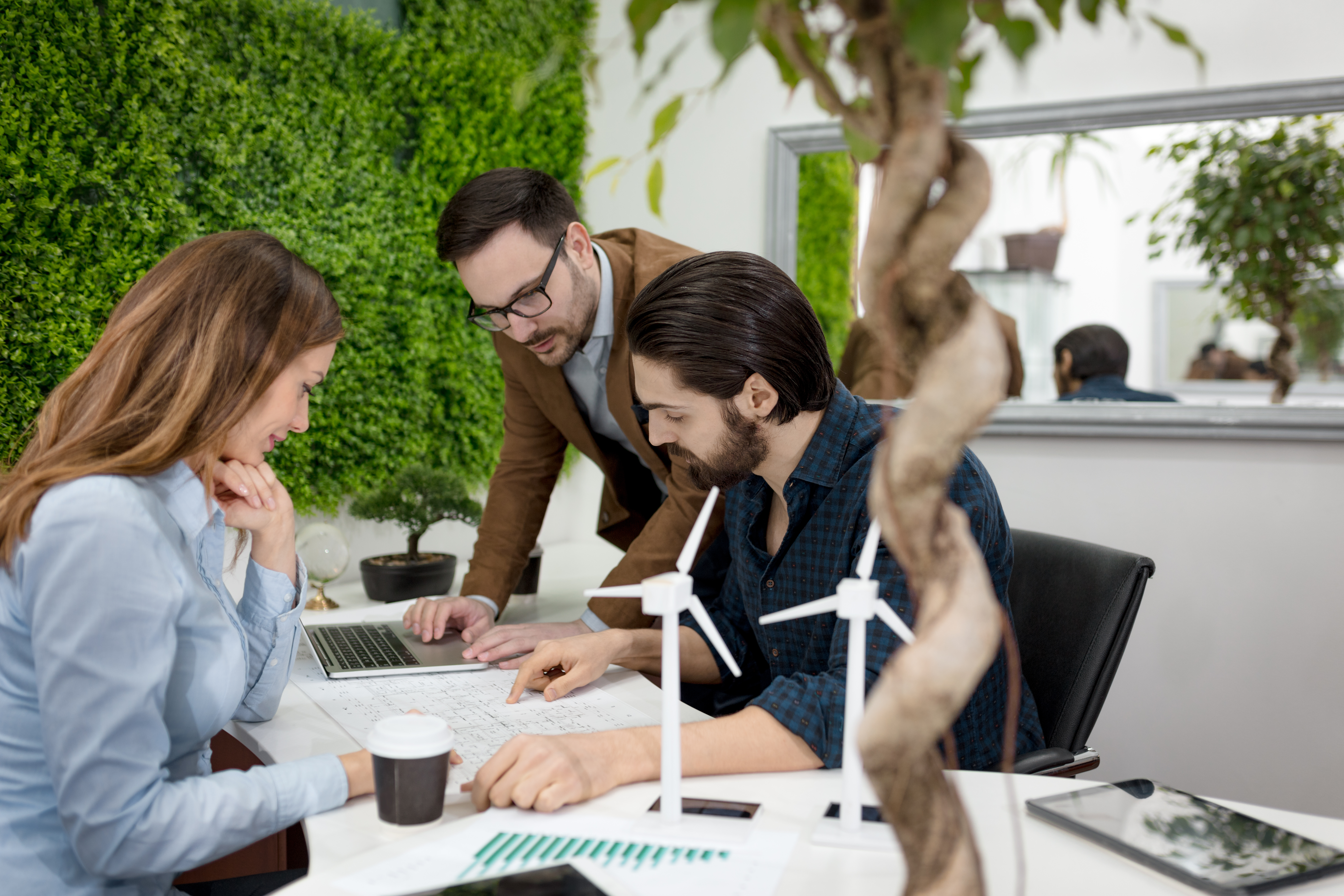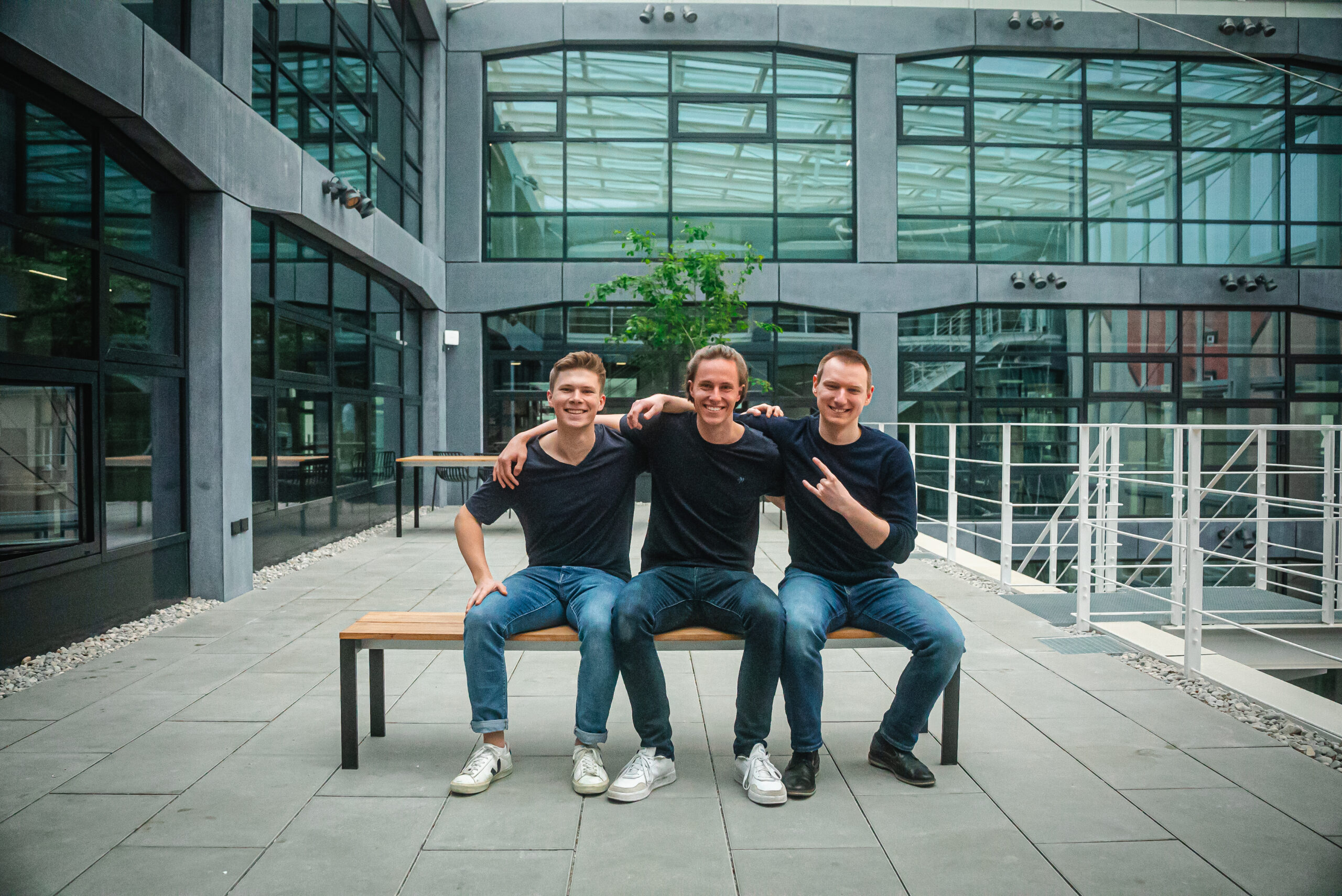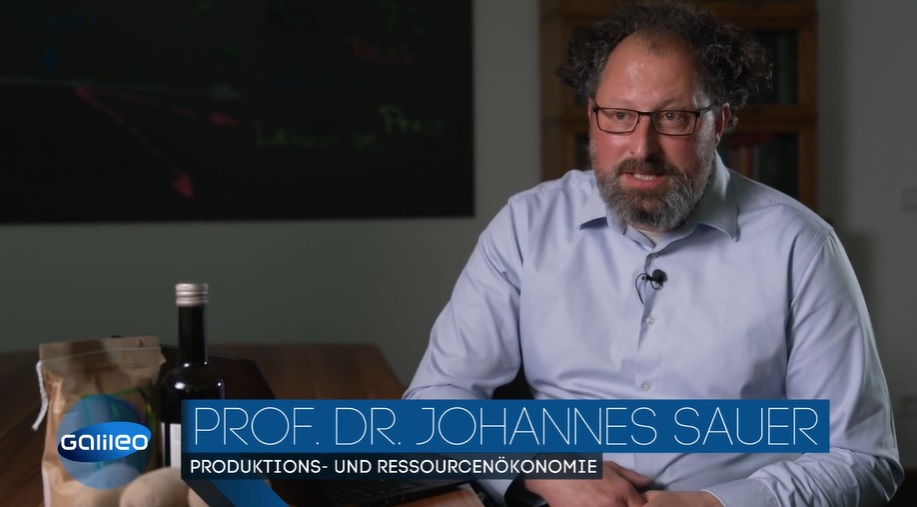
Professor Anja Faße charts a path out of the climate crisis that calls for new leadership and education
Fittingly, Halloween weekend marked the start of the eagerly awaited 26th United Nations Climate Summit. Instead of spooking themselves with horror movies, representatives of the member states traveled to Glasgow, Scotland, to discuss the next steps in the fight against a real scare that threatens to come out on top. The world is lagging behind its collective good intentions. Initiating systemic change seems as cumbersome as changing the course of an oil tanker. The 1.5 degree target is in danger of failing. If global warming is really to be effectively limited by 2030, as manifested in the Paris Agreement in 2016, drastic global measures are now unavoidable – in politics, in the energy sector, in mobility, in changing our lifestyles and habits, and surely in the economy. A change towards more sustainability and a system that no longer affects social or cultural aspects of society, let alone the environment. In short: a bioeconomy. Easier said than done? Yes and no. Because as daunting as the task may seem, today, thanks largely to technological advances and the digital revolution, we have all the tools in our hands to turn the tide and uncover exciting new opportunities in the process.
To delve deeper into the topic of the bioeconomy, we spoke with Prof. Dr. Anja Faße, who teaches in the new certificate program “Sustainable Management & Technology: Transformation towards Sustainability” alongside other sustainability experts. In our interview, she outlines which technologies will become indispensable for achieving our climate goals, contextualizes the importance of the course knowledge for future managers and points out the resulting career opportunities.

Prof. Dr. Anja Faße, Professorship Environmental and Development Economics at TUM Campus Straubing
Prof. Faße, how does bioeconomy build a bridge between technology, environment, society and economy?
Prof. Faße:
“The bioeconomy aims to combine economy and ecology for sustainable economic activity. At its core, it is about changing the raw material base from fossil to biogenic raw materials and building a bridge between technology, ecology, society and the economy and their interactions. This structural change involves the production and use of biological resources to provide products, processes and services in all sectors of the economy as part of a sustainable economic system. However, the use of natural resources itself is not sustainable per se. It requires a holistic approach that incorporates technology into production and services, systematically considers the environment as an input supplier, waste recycler, and direct benefit to the population, is demanded by society, and must be economically viable. The bioeconomy attempts to consider all facets in their interdependencies and to bring them into balance.”
Why is it so important that the implementing experts have an insight into the various areas of the value chain?
Prof. Faße:
“The holistic and interdisciplinary approach of the bioeconomy requires different sociopolitical and entrepreneurial approaches. It not only needs technologies that can produce sustainable products. It needs people who understand the idea behind it, transfer the bioeconomy into business, implement it and develop it further. These people need to understand both the requirements for the technologies and the basic economic and entrepreneurial ideas.”
What role does technology play in the concept of bioeconomy?
Prof. Faße:
“Bioeconomic innovations combine biological knowledge with technological solutions and exploit the natural properties of biogenic raw materials in terms of their recyclability, renewability and adaptability. And of course, the approach also implies the potential to create new products and processes to conserve resources and create wealth. For this, we need intelligent concepts based on new technologies and research fields such as biotechnology, artificial intelligence and biogenic material sciences.”
To what extent can bioeconomy support the change towards a sustainable economic development in Germany?
Prof. Faße:
“According to the German government’s definition, the bioeconomy encompasses the production, development and use of biological resources, processes and systems for the provision of products, procedures and services in all sectors of the economy within the framework of a sustainable economic system. The bioeconomy is thus an important strand of action for achieving sustainable development in the sense of the Sustainable Development Goals. In this context, the German government naturally also includes the international effects, e.g. on the world market and international supply chains. A role model function is to be created here. After all, this understanding of the biobased economic system does not end at national borders, but includes regional considerations as well as the global effects of local action.”
What is necessary to make a crucial contribution to achieving our climate and sustainability goals?
Prof. Faße:
“In addition to the development of new technologies for energy generation, the use of natural resources for novel products and the reduction of greenhouse gases, there is also a need for suitable political framework conditions that promote innovation. The latter must be skillfully designed so that society does not just perceive higher costs for renewable energies and new technologies and thus possibly more expensive products. Sustainable social and entrepreneurial behavior must also be rewarded. Revenues from CO2 taxes should be tangibly redistributed socially and entrepreneurially. This is the challenge for which policymakers must, of course, develop solutions.
The development of standards for the uniform and global measurement of emissions will be another task that must be solved together with science, companies and politics. This has already been implemented in the energy sector, but in the case of material use there have so far only been isolated corporate solutions at national level.”
What new training and skills do leaders need to shape and acquire to further develop the structural change under the concept of bioeconomy?
Prof. Faße:
“First and foremost, today’s leaders need an understanding of the complexity of a necessary structural change in order to be able to develop solutions. By combining topics from micro- and macroeconomics, chemistry, engineering and life sciences with comprehensive knowledge in the field of the efficient and sustainable use of biogenic resources, we at the TUM aim to convey that knowledge using an interdisciplinary approach.”
How important will this knowledge be in the future to be able to think and act across industries?
Prof. Faße:
“Value chains are not chains but networks, regionally, nationally and globally. Products are produced, transported, processed and consumed. By-products are created, but also waste that is reprocessed by other industries or used as input. The sustainable circular economy as well as the cascade concept of use will represent one of the most important basic principles of the bioeconomy for the future. And those who chose to get familiar with them now will be the ones appointed to higher tasks.”
New Certificate Program on Sustainability
Incorporating a sustainable strategy is indispensable for business as it ensures long-term value: A business that engages in sustainability practices is securing itself a place in the future economy. To support the transformation of organizations towards sustainable entities, we have designed a new certificate program “Sustainable Management & Technology: Transformation towards Sustainability” (available in German) starting February 2022. The program tackles current topics on sustainable management and innovative biotechnologies. Participants will learn to assess what trends and technologies have the potential to prevail on the market and to strengthen economic, social and ecological sustainability as well as recognizing new business areas and technologies in time.
Do you want to be part of the change you would like to see in business to protect the climate and our society? Then apply now for the new certificate program. This certificate program is also creditable as an “Elective Module” as part of the Executive MBA program.
The post On the Road to a Bioeconomy appeared first on Technical University of Munich – School of Management.



